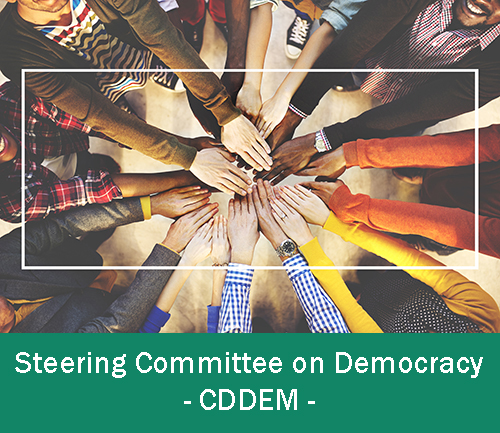Reykjavík Principles for Democracy
Appendix III of the Reykjavík Declaration
We, the Heads of State and Government, are committed to securing and strengthening democracy and good governance at all levels throughout Europe. We will work together to protect and promote the three fundamental, interdependent and inalienable principles of democracy, rule of law and human rights, as enshrined in the Statute of the Council of Europe and in the Convention for the Protection of Human Rights and Fundamental Freedoms.
We consider democracy as the only means to ensure that everyone can live in a peaceful, prosperous and free society. We will meet our obligations under international law. We will prevent and resist democratic backsliding on our continent, including in situations of emergency, crisis and armed conflicts, and we will stand firm against authoritarian tendencies by enhancing our shared commitments as member States of the Council of Europe.
Together we commit to the following Reykjavík Principles and will:
- actively enable and encourage DEMOCRATIC PARTICIPATION at national, regional and local levels through free and fair elections. As appropriate, forms of participatory democracy, including deliberative democracy, may be encouraged;
- hold ELECTIONS AND REFERENDA in accordance with international standards and take all appropriate measures against any interference in electoral systems and processes. Elections are to be grounded in respect for relevant human rights standards, especially FREEDOM OF EXPRESSION, FREEDOM OF ASSEMBLY AND FREEDOM OF ASSOCIATION, including for the creation of political parties and associations in accordance with national and international standards;
- maintain and protect INDEPENDENT AND EFFECTIVE PARLIAMENTS AND OTHER DEMOCRATIC INSTITUTIONS which determine their own rules and procedures and in which representatives from across the political spectrum can participate. All elected representatives will maintain HIGH ETHICAL STANDARDS;
- uphold the SEPARATION OF POWERS with appropriate checks and balances between different State institutions, at all levels, to prevent any excessive concentration of power;
- ensure INDEPENDENT, IMPARTIAL AND EFFECTIVE JUDICIARIES. Judges must be independent and impartial in the exercise of their functions, and free from external interference, including from the executive;
- pursue a relentless FIGHT AGAINST CORRUPTION, including through prevention, and by holding accountable those exercising public power, and continue fighting organised crime;
- ensure the right to FREEDOM OF EXPRESSION, including academic freedom and artistic freedom, to hold OPINIONS and to receive and impart information and ideas, both online and offline. Free, independent, plural and diverse media constitutes one of the cornerstones of a democratic society and journalists and other media workers should be afforded full protection under the law. Disinformation or misinformation posing a threat to democracy and peace will be countered, in a manner compatible with international law including the right to freedom of expression and freedom of opinion;
- invest in a DEMOCRATIC FUTURE by ensuring that everyone is able to play their role in democratic processes. Priority will be given to supporting the participation of young persons in democratic life and decision-making processes, including through education about human rights and core democratic values, such as pluralism, inclusion, non-discrimination, transparency and accountability;
- reaffirm that CIVIL SOCIETY is a prerequisite for a functioning democracy and commit to supporting and maintaining a safe and enabling environment in which civil society, as well as human rights defenders, can operate free from hindrance, insecurity and violence;
- ensure FULL, EQUAL AND MEANINGFUL PARTICIPATION IN POLITICAL AND PUBLIC LIFE for all, in particular for women and girls, free from violence, fear, harassment, hate speech and hate crime, as well as discrimination based on any ground.
We will share and promote these principles together with States and international organisations including the UN, the OSCE and the EU, as well as all those willing to work with the Council of Europe to further the achievement of greater unity and better global governance.



